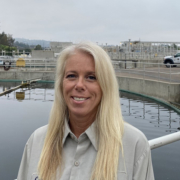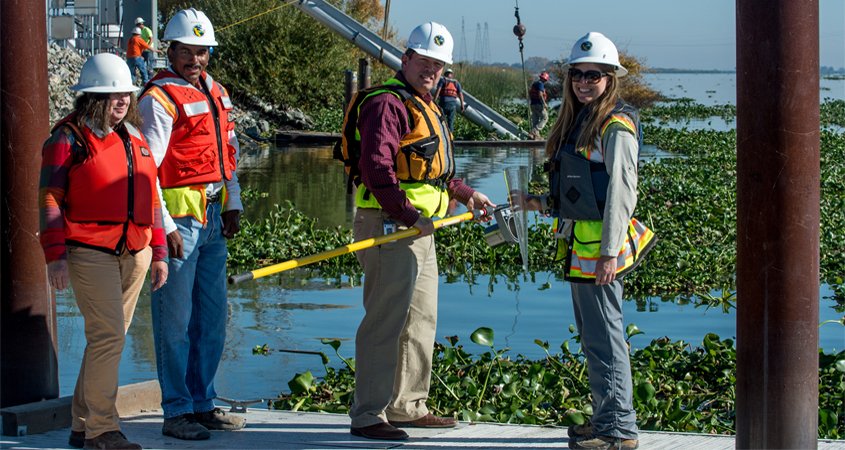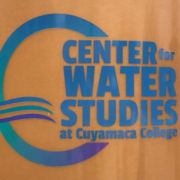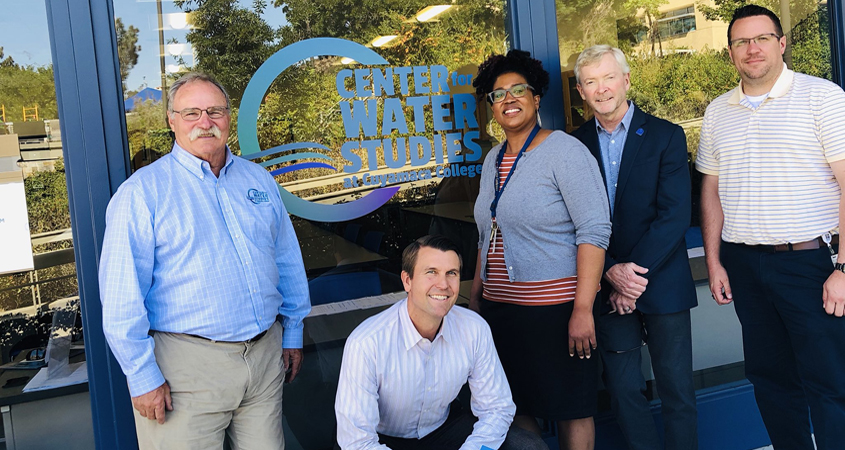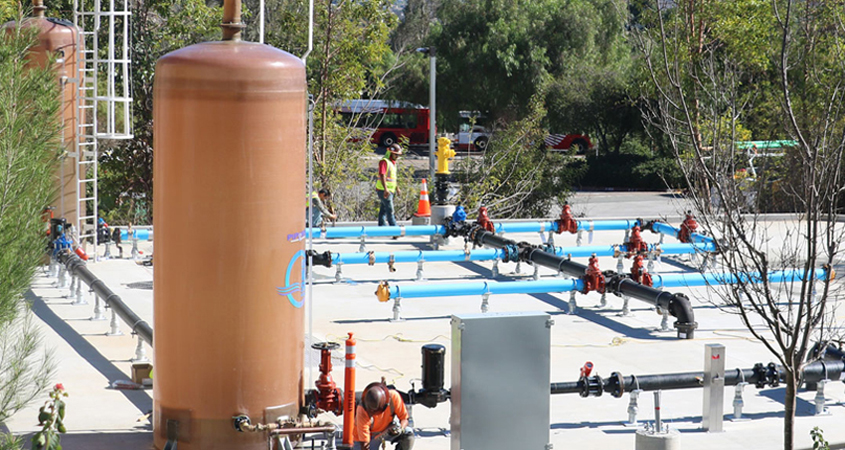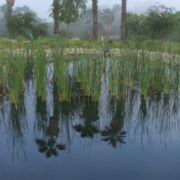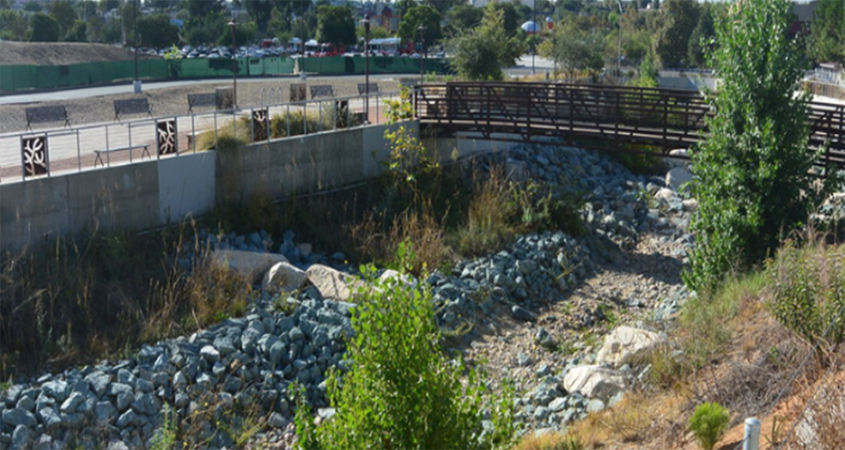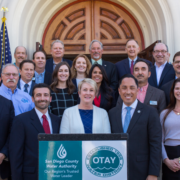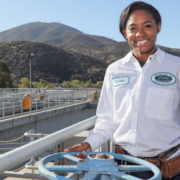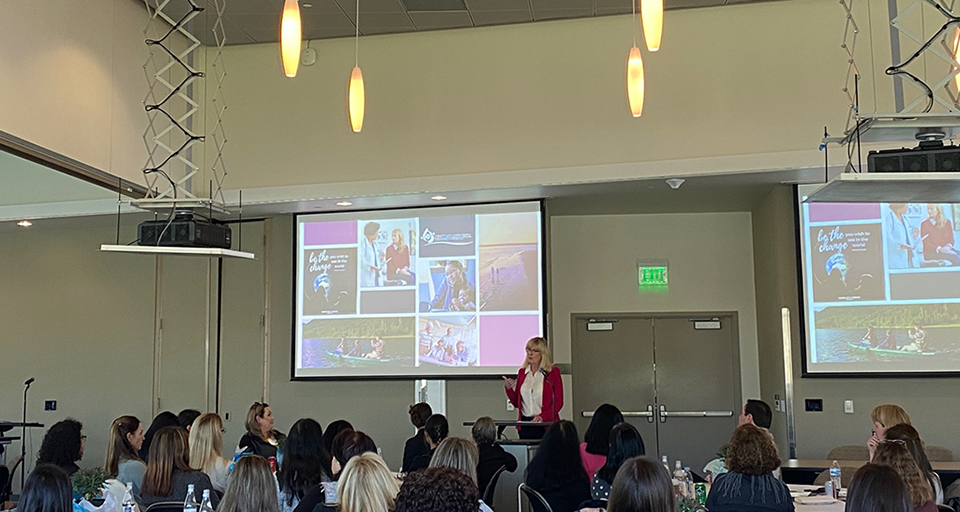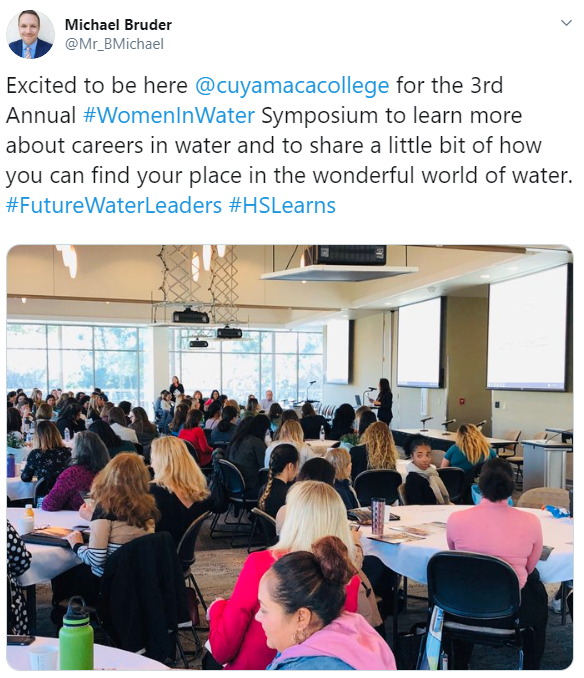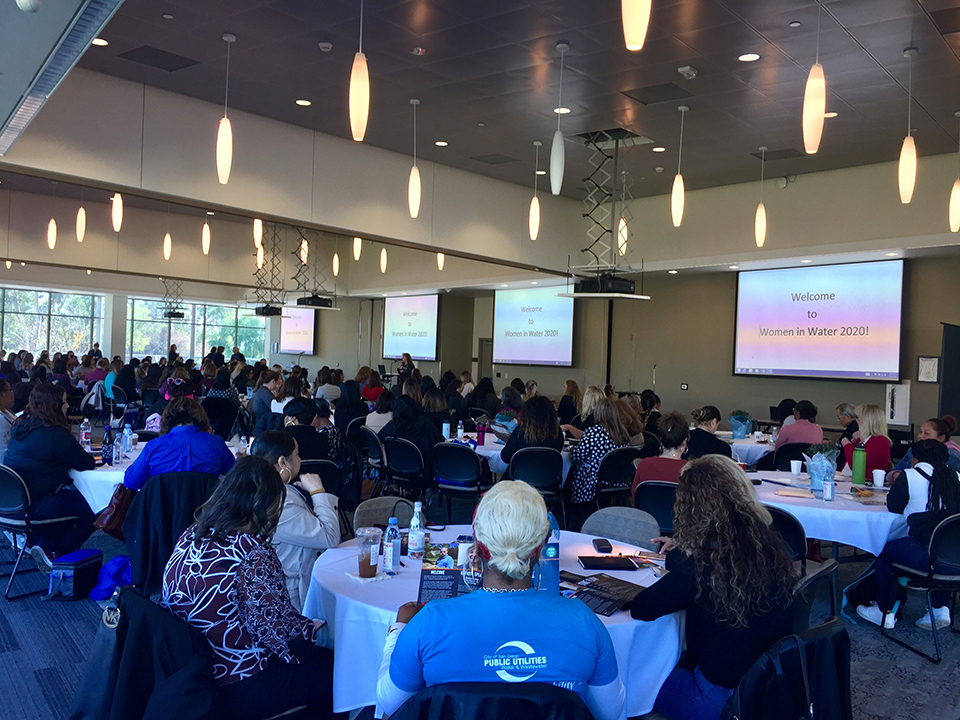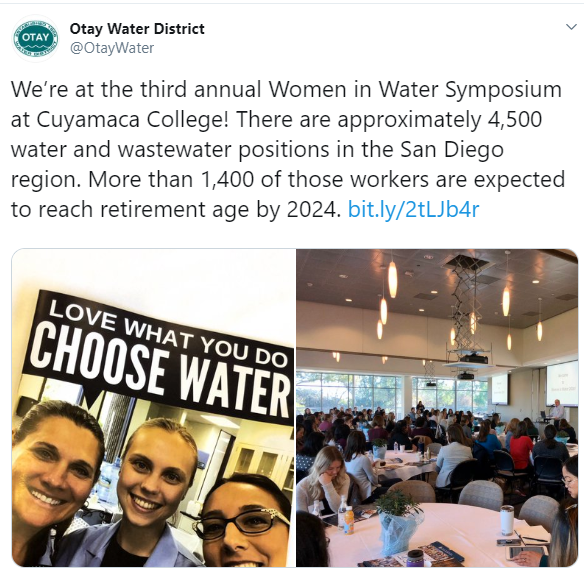Women in Water Symposium
The fourth annual Women in Water Symposium in March will be online this year due to the coronavirus pandemic. Previously hosted at Cuyamaca College, symposium sessions will be each Thursday starting March 2. This year’s conference theme is “Flow With The Change.”
Three specific career level tracks are offered to address needs at each level: entry-level for those new to water careers; mid-career for those transitioning and advancing within the industry; and upper level, for senior professionals looking to leave a legacy.
Session topics include negotiation skills; diversity, equity, and inclusion; dealing with change; the impact of COVID-19; and building a sustainable career. Program elements for all tracks are designed to create a larger community of people with the interest and aptitude to take on what were previously considered non-traditional careers.
The symposium is an opportunity for students, water industry professionals, and people exploring careers in the water and wastewater industry, to make connections.
“The Women in Water Symposium made it possible for me, as a young graduate student, to meet experienced, female engineers at any moment, from breakfast to sessions and everything in between,” said Alma Rocha, a San Diego State University graduate student studying environmental engineering.
“I got to meet so many amazing people and help them out with referrals to jobs and events that might help their career, ” said Alec Mackie with the California Water Environmental Association. “A very rewarding event.”
Vanessa Murrell, Foundation for Grossmont and Cuyamaca Colleges grant manager, said the conference is open to anyone, and this year is not limited by location by being held in a virtual environment.
Nurturing the next generation of water professionals
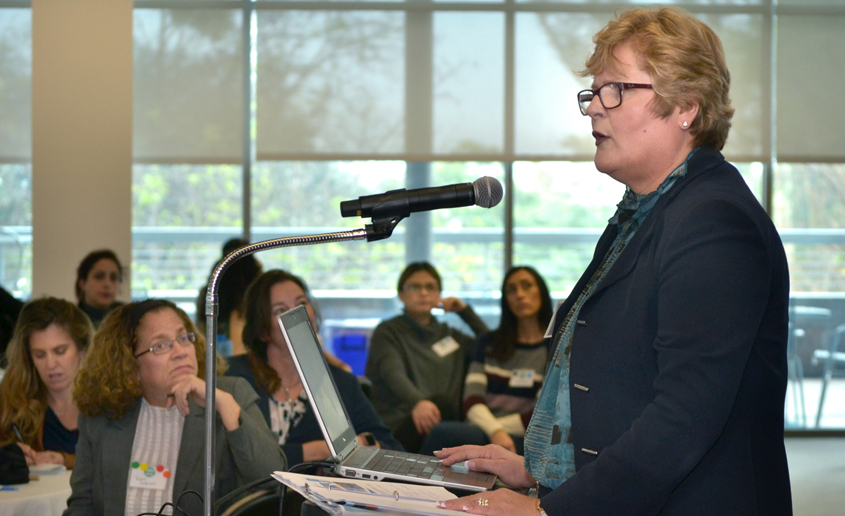
Water Authority General Manager Sandra Kerl is a longtime supporter and speaker at the Women in Water Symposium series sponsored by Cuyamaca College. This year’s symposium will take place online. Photo: Cuyamaca College
The Water Authority and its 24 member agencies have created a regional workforce development task force to address the “Silver Tsunami” of experienced employees reaching retirement age. The task force reports approximately 4,500 water and wastewater positions in the San Diego region. More than 1,400 of those workers are expected to reach retirement age by 2024. Water and wastewater treatment plant operators in California earn an annual average wage of more than $72,000, according to the U.S. Bureau of Labor Statistics.
Registration is $25 and free to students. Attendees only need to register once for all symposium sessions. Participants can attend any session from all three tracks. Register here.

